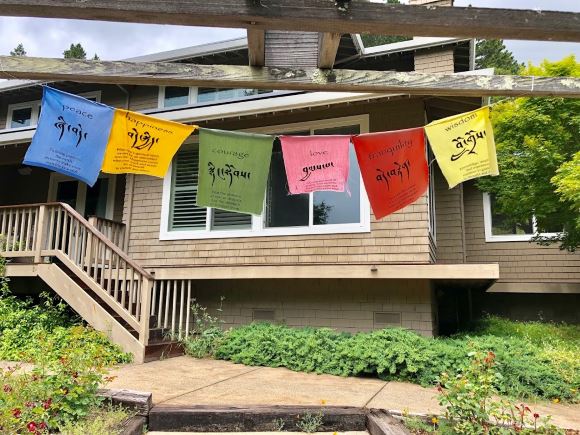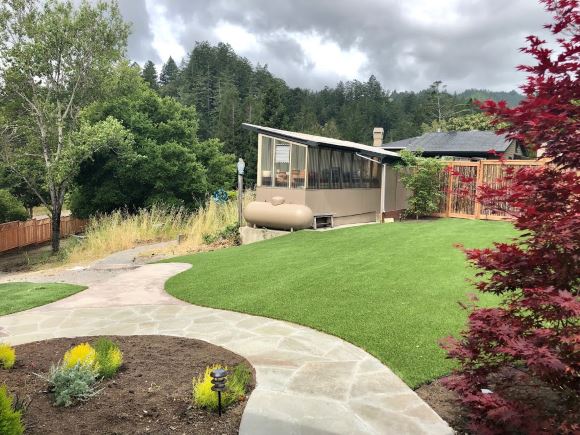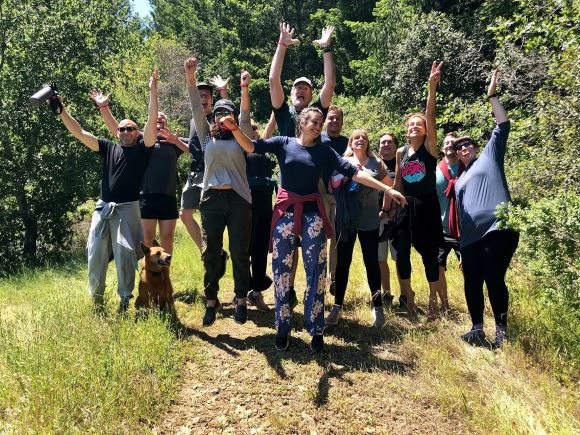Perfection Is Not The Goal. It's An Action.
[Beautiful reflection by Claudia Escorza, after a recent retreat at Banyan Grove.]
Perfection is not the goal, it’s action.
I have only been an Animal Rights activist for a couple of years, but ever since I became one, I’ve developed a keen interest in exploring myriad tools to help me nurture my mental and emotional health. In this line of work, you are confronted every day with the devastating suffering that animals endure; it can be debilitating and get in the way of the very contributions you intend to make for them.
I am fortunate enough to work at an organization where the culture for self-care is booming, where everyone seems to be increasingly aware of the perils of burnout and the importance of avoiding it. As part of those efforts, all staffers were extended an invitation to attend a five-day silent meditation retreat at Banyan Grove.
An incredible gift with obvious benefits for anyone in the movement. Ironically enough, it’s a movement that also operates under the consensus that time is of the essence, and taking more than three consecutive days off can feel like a luxury we cannot afford.
Being passionate about work is a common trait amongst activists, maybe to the extreme of dreading the thought of what might happen if we’re not there to do what we’ve chosen to devote our lives to, even if only for a short time. I certainly felt that concern –and many others, like being away from my dog, having to turn off my phone and curbing my nocturnal habits for several days– but also felt that the offer came at a moment when it was far too evident to me that I needed it, so I signed up.
One of the reasons why I wanted to try it was that I had attempted to get into the habit of meditating before with very modest and intermittent success. I’ve often seen it as something to master and felt frustrated that I haven’t. My perception of it even got simplistic at times, like there was something to “crack”, and once I figured it out, I would almost effortlessly reach an enlightened mind. All the while, there was never really much other than wishful thinking in the mix.
So I was excited to take on this opportunity. I arrived at a peaceful place, surrounded by breathtaking trees everywhere I looked, and was welcomed with the kind hospitality of everyone involved and the first of many delightful meals.

To my surprise, it didn’t require much effort at all to get into the flow of it. I found it easier than I expected not to think obsessively about how my dog was doing, I didn’t long for my phone, and the intensive meditation practice had my mind so engaged that I didn’t really struggle with an early bedtime and getting up for yoga at 6 a.m. In fairness, that last part may have had a lot to do with the likelihood that Maggie might just be the best yoga teacher I’ve ever met.
We had group sessions with Tashi Nyima, a Buddhist monk, and they felt riveting and enlightening. They made me reflect on how, in the past, I’ve expected to stumble upon some grandiose meditation secret that would almost have me levitating. I’ve underestimated the importance of just breathing mindfully, and he stressed it. He also highlighted the need to cultivate a positive mindset, to challenge the tendency of focusing on the negative, and to retrain the mind. To that end, he urged us to write down five good things that happen every day, and I’m very thankful for the invaluable reminder that such “simple” things can potentially change my perspective drastically if I’m consistent.
This journey also gave me the extraordinary gift of perspective. I got to meet admirable people that have been in the movement, even for decades, and yet are as resilient and committed as they have ever been. I have much to learn from these inspiring activists, and I hope I remember to think of them the next time I’m on the edge of despair about how monumental the task ahead of us can feel.

And perhaps what feels like the greatest lesson I got from this experience is the realization that, while empathy is a beautiful quality, only empathizing with somebody’s pain will drain me, consume me and render me incapable of doing something to help lessen that pain. It’s only when compassion follows that I’m helpful, when I use that empathy as fuel to act. The nature of our work can be emotionally devastating. The thought of millions of animals being killed for food every day can make it easy to feel hopeless, but I learned that if I want to be the most effective advocate I can be, I need to not let that sorrow drown me.
In all truthfulness, it’s not as though I’ve “mastered” meditation since I got back, but a breakthrough in itself is that I don’t really think about it in those terms anymore. The importance of being consistent is much clearer to me, and as a result, developing a practice feels a lot more achievable and I’m much more aware of how deeply intertwined it is with my overall well-being. As Tashi said, you don’t commit to your practice, you commit to your happiness. That understanding alone feels like a strong foundation that I didn’t have before attending this retreat.
I may not yet be in the habit of meditating as much as I’d like, and when I do, my mind still wanders, and even feels chaotic at times, but it has sunk in how powerful it is to just stop and breathe. To just put in the effort.

Veganism, meditation, activism – these are all things that I believe people find daunting because they might seem like they require perfection. This experience has resulted in me thinking that the world could benefit a lot more from millions of people doing all of them imperfectly than a few doing them perfectly.
Ultimately, we are not looking at imminent, overnight animal liberation. Sadly, my line of work may still involve witnessing their heartbreaking suffering for the foreseeable future, but I now have powerful tools to take that on more effectively, and for that, I’m forever grateful.
Posted by Birju Pandya on Jul 13, 2019



On Aug 13, 2019 Fran Faraz wrote:
Post Your Reply